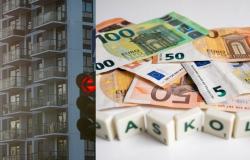The eye-popping fact that cryptocurrencies are becoming an increasingly popular payment method and form of investment, but their legal status is still not completely clear, prompts us to think about the necessary changes. Believing in “inevitable success”, it is not uncommon to decide to invest in cryptocurrencies by borrowing (various statistics show that more than 60% of investments in cryptocurrencies come from borrowed funds), but in case of failure, the creditor has difficulties in recovering such a debt.
Although economic and legal experts unanimously agree that unpaid debts should follow money into the electronic space, for now it is still a “terra incognita” that lacks clearer regulatory guidelines from state institutions. However, there is also good news – the latest trends show that soon it will be possible to take a look at the virtual wallet of the debtor and, if necessary, initiate the debt collection process.
Assets that must be declared
With the rapid development of virtual currency markets, no one has any more questions about whether they can be considered an asset – considered, and also as such, on which taxes must be paid.
It is necessary to emphasize that the legal status of cryptocurrencies varies from country to country and the courts and public institutions of different countries evaluate them differently: in some countries, virtual currencies are equated with goods or transferable property, but there are countries where their acquisition and payments are generally prohibited.
It is true that a large number of countries, including Lithuania, took a neutral position when the virtual money market was developing – they do not prohibit virtual currencies, but they did not apply specific regulation to this sector for a long time either. This means that the persons operating in this market assume all the risks associated with them and the responsibility for possible losses.
Therefore, it is not for nothing that the State Consumer Rights Service warns on its website that “virtual currency exchanges are not banks, therefore, in case of loss of money, there are no specific legal protection measures guaranteeing the coverage of incurred losses”.
The Personal Income Tax Law of the Republic of Lithuania states that virtual currency (cryptocurrency) is recognized as a short-term asset that can be used as a means of payment for goods and services or held for sale. The law also states that from the tax point of view, virtual currency is considered to be an instrument that is analogous in its characteristics to instruments such as bitcoin, Ethereum, Ripple, litecoin, etc.
Virtual currency exchanges are not banks, so in the event of losing money, there are no specific legal protection measures guaranteeing the coverage of losses incurred.
And the important part is that these “temporary assets” must be subject to compulsory taxes – this shows that the value of these “intangible” assets is perfectly measurable (although constantly changing) and the fact of existence is undeniable.
Another important piece of this puzzle is the cryptocurrency holder himself. Since the beginning of the development of the virtual money system, anonymity has been considered the greatest advantage of crypto-currencies, because banks or the state do not find out about transactions with such money, and anyone can open a crypto-currency account, even if they cannot or for some reason do not want to open a bank account.
True, when purchasing virtual currency, you will have to pay for it in real euros, just as when selling it, you have to use the services of intermediaries (“exchangers”), and to these you have to provide your personal data and send/receive money not in an envelope, but electronically, in addition, the vast majority of trading platforms that allow payment in virtual currency also indicate the need to provide personal data.
Therefore, the advantage of anonymity in the course of the real process has certain nuances, which, from the perspective of regulation seeking greater transparency, can provide more valuable information and tools that help prevent illegal activities and facilitate the identification of existing digital assets, etc. processes.
If we agree that digital assets can be inventoried (declared), their value can be measured, what prevents the development of advanced mechanisms to help debtors in civil debt lawsuits be compensated in virtual currency?
Of course, there are certain technical aspects, such as the question of seizing or keeping such money, but the precedents of legal cases show that this is possible: according to the data of the Registry Center, in 2020, the Register of Seizure Acts indicates that a request for sequestration was granted in one of the cases cryptocurrency – so it can be done.
This situation brings a smile to the face of the fact that the said seizure of assets (ie, cryptocurrency) was assigned to the category of unidentified assets, where, in addition to virtual money, more interesting cases of seizure of assets include a solar power plant, a Boeing aircraft, various breeds of cows, luxury watches, etc.
The requirements for companies are getting stricter
It is no coincidence that I mentioned the gray area at the beginning of this text, because the fog should clear in the near future. There is already an important signal that the attitude towards cryptocurrencies and transactions with them and the business actively operating in this sector is changing, taking into account the dynamics of the development of this market and the realities of life – from the end of this year, stricter requirements will come into force for companies providing services related to cryptocurrencies in the country.
At the beginning of last year, the Ministry of Finance prepared and submitted for coordination with other institutions a dozen drafts of amendments to the laws that implement the requirements of the European crypto-asset markets (MiCA) and funds transfer regulations (TRF).
The aforementioned regulations will establish new performance requirements for the providers of these services and consolidate their licensing process. The Bank of Lithuania (LB) will be responsible for the supervision of crypto-asset service providers, asset-linked token issuers and electronic money token issuers, and two institutions – the LB and the Financial Crimes Investigation Service – will be responsible for the supervision of crypto-asset service providers’ money laundering and terrorist financing prevention (PPTF) (FNTT).
The Bank of Lithuania emphasizes that a fundamental change awaits, as the activities of crypto-asset service providers, like other participants in the financial market, will be regulated, requirements for specific consumer protection will arise and these changes will enter into force in the entire European Union (EU).
Although it would be difficult to accurately estimate how many of the country’s inhabitants actively use virtual currencies, another indicator is telling – in terms of the number of registered crypto asset companies, Lithuania ranks second in the EU (at the end of last year, there were 540 of these companies in Lithuania, for comparison, in 2020 – only nine), in this in the field, the largest number of companies of this type operate in Poland.
Why is this new regulation important to everyone? Because the economy of the country and the world does not work in a vacuum, and if one domino falls, the entire domino chain of related parties can collapse in one way or another: crypto-currency investors are also consumers of products and services who may have other debt obligations to all kinds of companies and organizations, from utilities and internet providers to private schools.
Cryptocurrency and debt collection
So how will cryptocurrency and its inevitable rise as a form of payment affect the world of debt collection? As more and more banks and companies decide to accept cryptocurrency payments, the possibility that this method will gradually displace traditional forms of payment is certainly not unrealistic, but at the same time, it means that creditors will have to invest in the digital transformation of their business processes in order to ensure a successful debt collection process. virtual currency – bitcoin is not a gold bar and you can’t put it in a safe.
I have no doubt that as cryptocurrency becomes a legitimate alternative to cash, more and more lenders will soon start offering cryptocurrency credit lines where the entire process will be automated, which should reduce the number of delinquent debts. We are already giving artificial intelligence an important role in the debt collection process of our clients – it collects data, analyzes it, compares legal nuances in different countries and takes other technical work off the shoulders of employees so that they can focus more on direct work with clients.
Not to mention the fact that it reduces collection costs by eliminating a lot of human and financial resources – different jurisdictions, different legal systems and a variety of banks can make the debt collection process ridiculously complex.
The development of the virtual money market is not a negative process, although there are often attempts to portray it as such. We can hardly afford to build a wall bigger than the Chinese wall and try with all our might to distance ourselves from a phenomenon that exists all over the world and is constantly evolving, especially since the participants of this market – both companies and private individuals – pay taxes to the state budget.
However, it is crucial to ensure that other timely processes take place with the dynamics of the development of digital assets, including those that help initiate such legal processes as the recovery of civil debts from virtual currency accounts.
Tags: Marius Shlepetis Bitcoin gold bar good debt repayment Business
-





